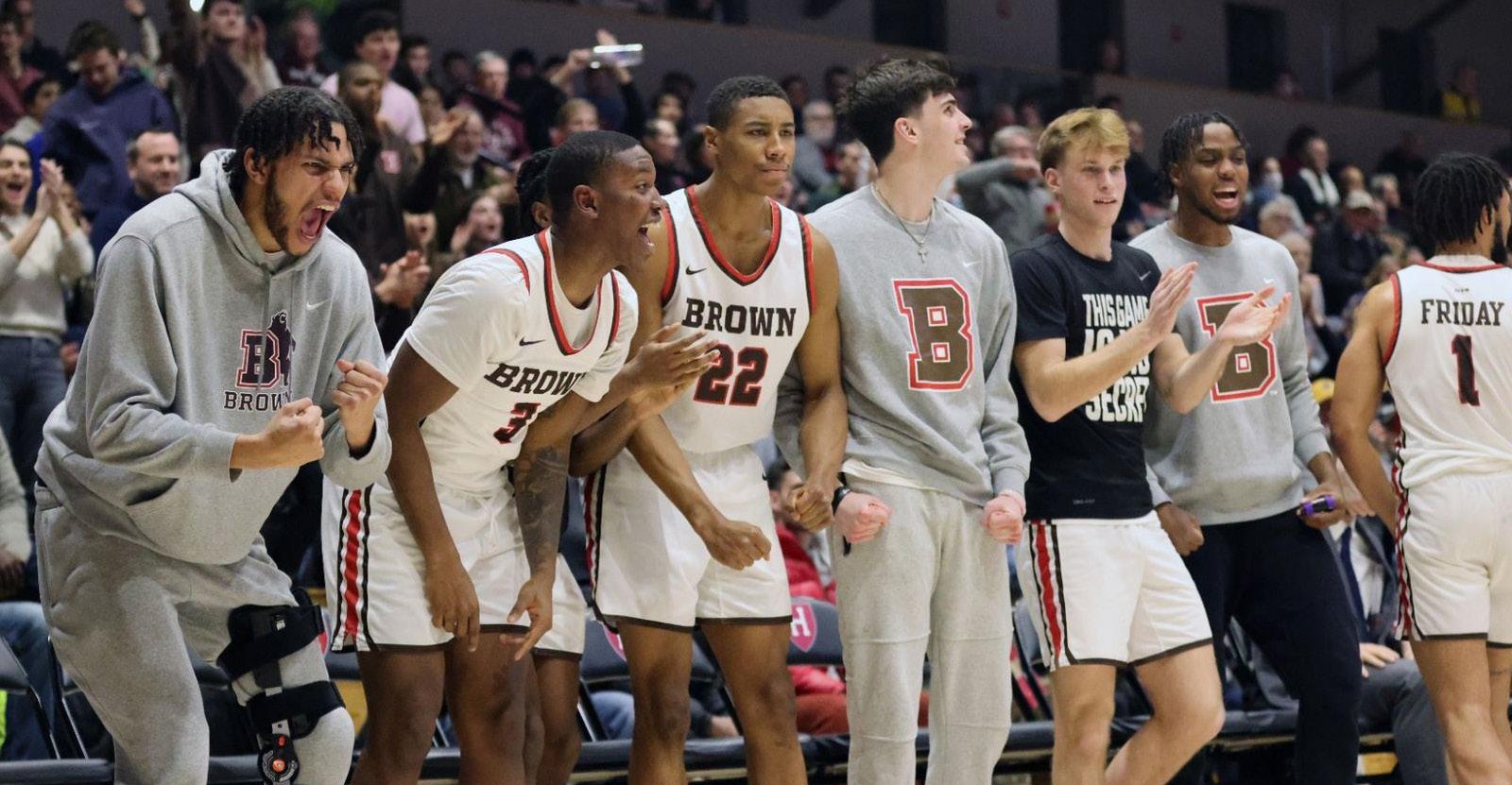UCS recall: What you need to know
Simple majority to vote yes or no, result to come Wednesday evening
BY KATHY WANG UNIVERSITY NEWS EDITORThe recall election of undergraduate Council of Students President Ricky Zhong ’23 will begin at noon on Monday and close at noon on Wednesday, according to a Feb. 3 announcement from uCS.
The voting question will be: “Should Ricky Zhong be recalled from the office of UCS President?” Elections Co-Directors Eli Sporn ’24 and Joon Nam ’23 wrote in the announcement. Students will vote “yes” to approve the recall — in which case Zhong will be removed from office — and “no” to disapprove it. All active undergraduate students can participate in the “simple majority” election, and at least 10% participation is required for the result to be valid, Sporn and Nam wrote.
The recall election result will be announced Wednesday night, Sporn said.
If Zhong is recalled, an “internal special election” — meaning only UCS members will vote — will fill the presidential vacancy “due to the immediacy of the (Student Government Association) Spring Election timeline and historic precedent for filling student government officer vacancies,” according to the announcement.

Christopher Vanderpool ’24, author of the recall petition, said that he thinks the recall election is “a little rushed,” referring to the “really quick turnaround” between the Friday, Feb. 3 announcement and the Monday, Feb. 6 election.
“A few more days would have … helped students to get the word around campus because over the weekend I don’t know how much people are interacting and speaking with each other” about uCS politics, Vanderpool added.
“I believe that most if not all of us on uCS understood that the claims in the petition are false and made in bad faith, but we wanted to make sure students felt heard and respected in this matter using their own voice,” Zhong wrote in a statement he shared on Instagram Jan. 31.
“There were a lot of harmful exchanges going on. We wanted to (make the election happen) as soon as possible,” said Nam. He added that asking a yes-or-no question for the recall, rather than voting for specific candidates, is in line with the UCS Code of Operations.
The Student Activities Office offered the UCS Elections Co-Directors recommendations for the recall election procedures, according to Sporn. “We wanted to make sure that (the guidelines weren’t) solely coming from inside uCS,” he said.
The petition to recall Zhong was first circulated in September, initially met its signature requirements in November and received final approval on Jan. 30, The Herald previously reported.
If the recall passes, all undergraduate students — including seniors — will be eligible to apply for the open position to serve as uCS president until the end of the current semester, Nam said.
Vanderpool said that he believes holding an internal election to fill the presidential vacancy would be “unconstitutional” and “really unfair to the student body.”
Although holding an internal election is not specified in the Code of Operations, Nam stated that uCS wanted to be “consistent with what (they’ve) done for other vacancies in UCS e-board” — such as the internal election to fill the Undergraduate Finance Board vice chair in 2021.
“As it is a special election, we do have the flexibility to determine what that looks like. And that’s how we’ve interpreted” it, Nam added.
SEE RECALL PAGE 2
It’s ‘over the top’: Students talk recall

Community discusses justification for recall, disinterest in proceedings
BY INDIGO MUDBHARY SENIOR STAFF WRITERJung Haye To ’24, outreach director of u CS, first heard about efforts to recall u CS President Ricky Zhong ’23, a motion that the u ndergraduate Council of Students approved last Monday, halfway through fall semester.
The recall election — which will ask students “Should Ricky Zhong be recalled from the office of u CS President?” — will begin at noon Monday and close after 48 hours. Results will be announced Wednesday night.
To views misinformation as one of the biggest challenges facing the recall election, adding that u CS will try to make sure the upcoming election is “free, fair and based on legitimate and true information.”
Debating recall legitimacy, motivations
To will vote to keep Zhong in office in the upcoming election, citing u CS’s efforts to instate free laundry for the rest of the spring semester, a new mailroom queue monitor and the Nelson Fitness Center’s online occupancy tracker as “really important” u CS initiatives started under Zhong’s tenure.
“I’ve never seen the effects of u CS’s changes as much as I do now,” To said. “People have been wanting and needing (these changes) for years now.”

To is also skeptical that recall efforts were motivated by “genuine concern for the Brown community.” Christopher Vanderpool ’24, who organized the recall petition, alleged in the petition that the u CS secretary was neglecting her duties to record “vote tallies on the acceptance of u CS Resolutions, Statements or changes to the u CS Code” on the u CS website, which To does not believe directly applies to the president’s work.
“No matter who ends up contributing or providing a certain responsibility, … as President it’s your responsibility to ensure that your members are upholding the values of your organization and fulfilling the duties and responsibilities of their role,” Vanderpool said.
To added that there are ways other than a recall petition for community members to give feedback to u CS. Students can attend town halls, visit To’s outreach hours and contact Zhong directly.

Vanderpool said he was in contact with both Zhong and u CS Vice President Mina Sarmas ’24 early fall semester regarding his concerns, but that he felt these conversations were “very unproductive.” He added that he chose not to approach other members of the executive board because he felt unwelcomed by the organization.
According to To, u CS ultimately chose to move forward with the recall election to ensure the council does not set a precedent to use its “power (to) dismantle any recall” that students may bring in the future.
‘It’s not that deep,’ students say
Ruth Engelman ’25 heard about the recall election through social media and described the proceedings as “blown out of proportion.”
Though Engelman does not usually follow u CS politics, she feels that the criticism both Zhong and Vanderpool have received over the past several weeks is “over the top for a student government election.”
“It doesn’t matter very much to me honestly,” Engelman
DESIGNED BY
But Vanderpool said that special elections are considered so “not because there’s a different body of people voting (or) a different elector, but because they’re (just) happening at times outside of regularly scheduled elections.”
Nam recommended that students “do a lot of research (and) make sure you see both sides so that you’re informed for the actual vote.”
Sporn also said that the Elec -
said, adding that she does not plan to vote in the recall election
When Catherine Paik ’25 first got news of the recall election, she assumed “something really bad (had) happened” because she had never heard of a recall happening in student government before.
Paik said she intends to further research the context behind the recall before voting.
Leanna Bai ’25 found out about Vanderpool’s recall efforts through various emails, social media postings
UNIVERSITY NEWS
tions Committee — which consists of members from u CS, u FB and the Class Coordinating Board — is currently working on a uniform elections code for the three branches of student government.
“The general Code of Operations for all three branches in terms of elections (is) both disjoint and convoluted,” he said.
Sporn added that the Student Government Association now refers to all members of u CS, u FB and CCB
and friends who are involved in student government, but said she thinks “it’s not that deep.”
“It’s a student government, not the President of the u nited States,” Bai added. Student government needs to have a more significant “presence in our Brown community for people to care about who” the president is.
Bai, who found the comments section of Zhong’s recent Instagram statement regarding the recall “surprisingly inflammatory,” said that she feels “like an outsider” in the recall proceedings.
instead of just the leadership of the three branches. Members of the Elections Committee will present the new elections code — which is expected to be finished in two to three weeks, according to Sporn — to their respective branches, and all three branches will have to approve it, Nam said.
Information sessions for the SGA Spring Elections will be held on Mar. 1 and Mar. 3, according to the announcement establishing the recall election’s rules.
Bai added that she would rather not have a recall because she is “tired of constantly voting for another president.” Zhong was elected in a runoff election last spring after filing an appeal arguing that the original election procedures violated Article VIII of the u CS constitution, The Herald previously reported.
Ronald Yuan ’23.5 said he learned about the recall through friends and from various “signage and slips of paper strewn about” the Stephen Robert ‘62 Campus Center.
“It felt kind of out of left field to me,” Yuan said. But “I hope there’s some good discussion that is generated from this.”

Meenakshi Narain, renowned physicist, mentor, passes away at 58
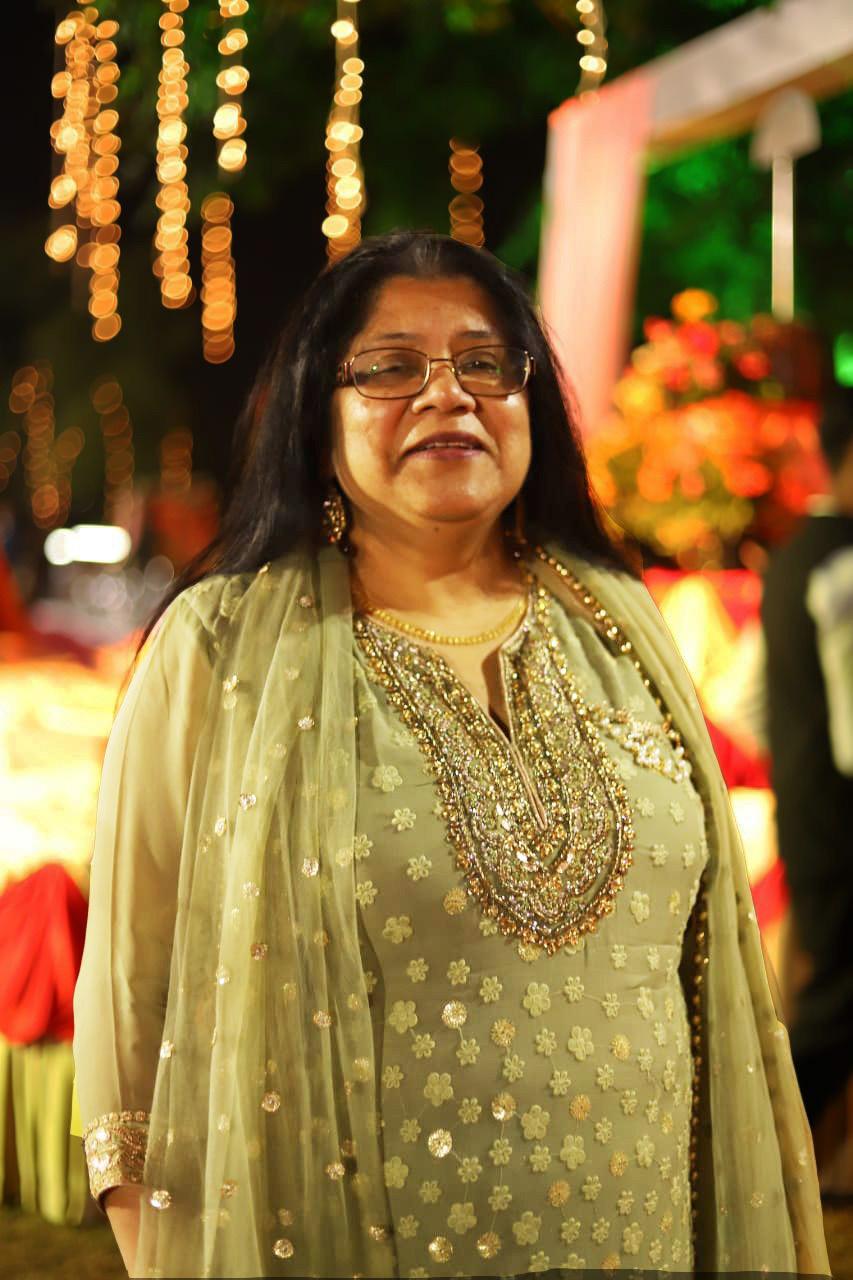
Narain celebrated by colleagues, students, family as researcher, advocate for inclusion
BY NEIL MEHTA UNIVERSITY NEWS EDITORJanet Blume, deputy dean of the faculty, first met Meenakshi Narain while working together in Barus and Holley after Narain’s arrival at the u niversity in 2007.
Narain “was at the top of her game as a researcher, she was dedicated to students and mentoring people from underrepresented backgrounds. She did all of those things in a really thoughtful way,” Blume recalled.
Narain, who served as chair of the u niversity’s physics department, passed away Jan. 1 at age 58, leaving an enduring legacy of mentorship and advocacy at the u niversity. Students, colleagues and family remembered Narain as a compassionate instructor and researcher, as well as a champion for diversity and inclusion in STEM at a memorial Jan. 7 and through a digital message board set up for friends to post tributes in her memory.
She was “amazing because she could do everything,” Blume said.
In the months following her passing, The Herald spoke with several of Narain’s former students, colleagues and family members about her lasting impact at u niversity and beyond.
Dedicated to ‘integrity and achievement’
Professor of Physics Gang Xiao, who is the current interim department chair and also served as chair before Narain, described Narain as a devoted mentor to her students — “one of the most productive researchers” in the physics department and “a brilliant scientist.”
Professor of Physics u lrich Heintz,
Narain’s husband, remembered her as “compassionate … with a high standard for integrity and achievement.” Heintz met Narain when the two attended graduate school at the State u niversity of New York at Stony Brook, during which the two married.
Beginning in 1998, Narain worked at Boston u niversity, where she advocated for improvements in gender equity in STEM by mentoring women scientists in high school, according to Heintz.
In both her family and professional life, Narain was known as “a very effective organizer,” Heintz said.
Family members remember Narain’s penchant for hosting large Thanksgiving celebrations with upward of 40 guests at her home, Heintz added. She enjoyed regularly hosting parties with friends and even inviting over her research group.
At the u niversity, Narain “organized the first in-person meeting of the (Department of Physics) since the pandemic started” after being appointed as chair in July 2022, Heintz said. She also organized the Big Bang Science Fair, hosted at WaterFire Providence, which brought together scientists and artists to expose attendees of all ages to STEM.
Narain also served as chair of the u .S. collaboration for the Compact Muon Solenoid experiment, one of two major experiments at CERN, the European Center for Nuclear Research. In the role, Narain fought against “the old buddy network, driven by musical chairs between the same people serving as leaders,” Heintz said. She promoted meritocracy among the leadership, advocating for the promotion of younger scientists.
“She tried to influence the system to be more equitable and provide more opportunities across the board,” Heintz said.
Narain’s ‘unwavering commitment’ to professorship
Blume said that one of Narain’s most remarkable qualities was her intentionality as an educator.
“She didn’t just do physics and do teaching,” Blume said. “She studied how to do physics, studied how to do teaching and studied how people interact with one another.”
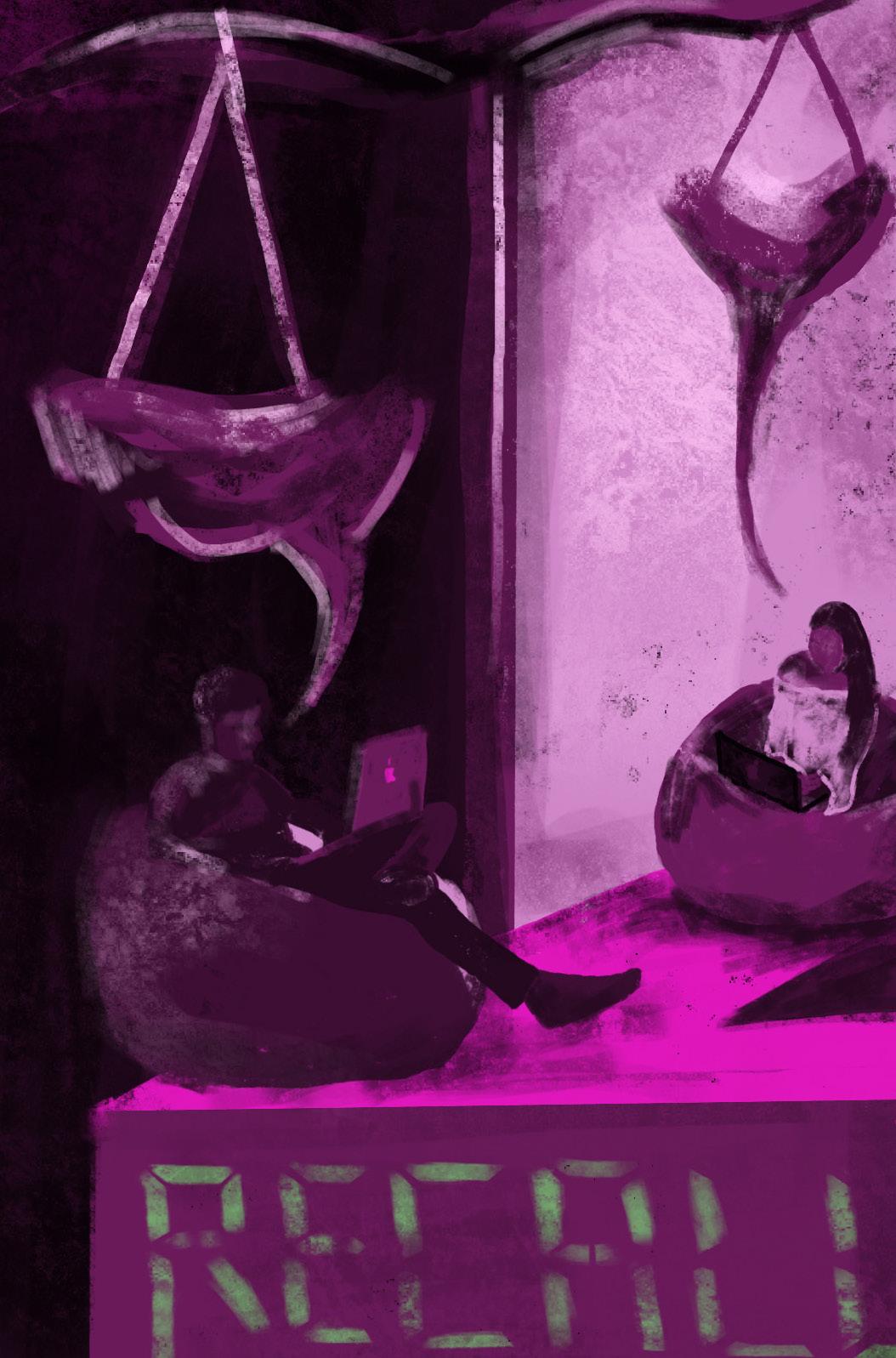
As chair of the department, Narain “was thoughtful and studied organization and how to lead effectively,” Blume said. “I’m a couple of years older than (her), yet I looked up to her … as a role model (for) myself.”
Among Narain’s many professional accomplishments, she was particularly proud of her advocacy efforts for increased diversity and inclusion in physics, Blume said.
When Narain was appointed as department chair, she asked Blume if there had ever been a woman in the position before. u pon learning that she was the first, Narain “was so proud,” Blume said. “And I was proud, too.”
Daniel Li GS, one of Narain’s graduate students, remembered her as a compassionate and ambitious mentor. Narain “told me to not be so hesitant” before trying new research approaches, Li said. “She had a really good perception of students’ weaknesses and strengths, and then pushed them to be more well rounded.”
Li recalled the reputation of Narain’s lab and her rigor in preparing her students. “If you graduated from (her) group, you knew that you were qualified to have ‘doctor’ in your title,” Li said.
Professor of Physics Gang Xiao, who is the current interim department chair and also served as chair before Narain, said that Narain “was known for her unwavering commitment to” graduate and masters students, as well as undergraduate concentrators.
“She really (cared) about every single one of them.”
Xiao recalled one year when Narain’s son was set to receive his doctorate from Cornell on the same day as the department’s commencement.
Narain traveled to Ithaca and back to Providence the same day to participate in commencement festivities.
Narain was both a “wonderful mother and also a fantastic professor to our students,” Xiao said.
“I was always struck by Meenakshi’s attention to detail and dedi -
cation to her work,” he added. “She asked me a lot of questions about how the department operates and which areas we can (improve). She just wanted to learn as much as possible.”
Narain was “a force of nature in promoting women and underrepresented minorities and building STEM for all,” Xiao said. “She will be deeply missed by all of us.”
“It’s been a difficult January for the physics community at Brown,” he added. “We just need to continue her visionary work.”
SPORTS
Men’s hockey suffers two-loss weekend against St. Lawrence, Clarkson
Rookie goalie performs well in first collegiate games despite two tough losses
BY DENNIS CAREY SENIOR STAFF WRITERThis past weekend the Bears men’s ice hockey team (8-13-2, 4-10-2 ECAC) lost games on Friday and Saturday night to both St. Lawrence (14-14-0, 9-7-0 ECAC) and Clarkson (12-13-3, 6-8-2 ECAC).

The Bears had a difficult time maintaining their momentum after an upset against the Harvard Crimson nearly two weeks ago on Jan. 21.
“The 14 days in between games was obviously not beneficial for us,” Head Coach Brendan Whittet ’94 said via Brown Athletics. “We looked really rusty and it showed.”
This weekend was the first appearance of goalie Jacob Zacharewicz ’26, who started after Mathieu Caron ’25 suffered an injury. Despite the tough scores of the weekend, Zacharewicz performed well, with 20 saves Friday and 30 on Saturday.
St. Lawrence 6, Brown 0
The Bears showed strong defense during the first St. Lawrence attack but were unable to maintain the effort, conceding a goal in the fifth minute.
The period continued with a St.
Lawrence penalty giving Brown a power play in the seventh minute.
Despite strong offensive attacks by the Bears, the Saints were able to complete their penalty kill.
Shortly after, the Bears were unable to stop the Saints’ attack, leaving them down 2-0 in the 11th minute.
The period continued to cause problems for the Bears, as a penalty committed by Ryan Bottrill ’26 put the Saints in their first power play of the game, leading to a goal that put the Bears on the losing side of a 3-0
score at the end of the first period.
The Bears struggled to break the Saints’ goalie, who had multiple saves on breakaways by Bruno. The Saints’ defense also prevented any shots during two Brown power plays.
The Bears were unable to recover in the third period as the Saints scored two goals in the fourth and sixth minutes, bringing the score to 5-0. Later in the period, the Bears failed to capitalize on a 5-3 powerplay, and a late St. Lawrence goal in the 16th minute concluded the
game 6-0.
“We got to be better on the power play,” Whittet said, noting that the team lost forward Matt Sutton ’24 to an injury before the game. “I thought our power play struggled all weekend.”
Clarkson 6, Brown 2
The Bears sought redemption from Friday’s game against St. Lawrence but were unable to obtain it Saturday against Clarkson.
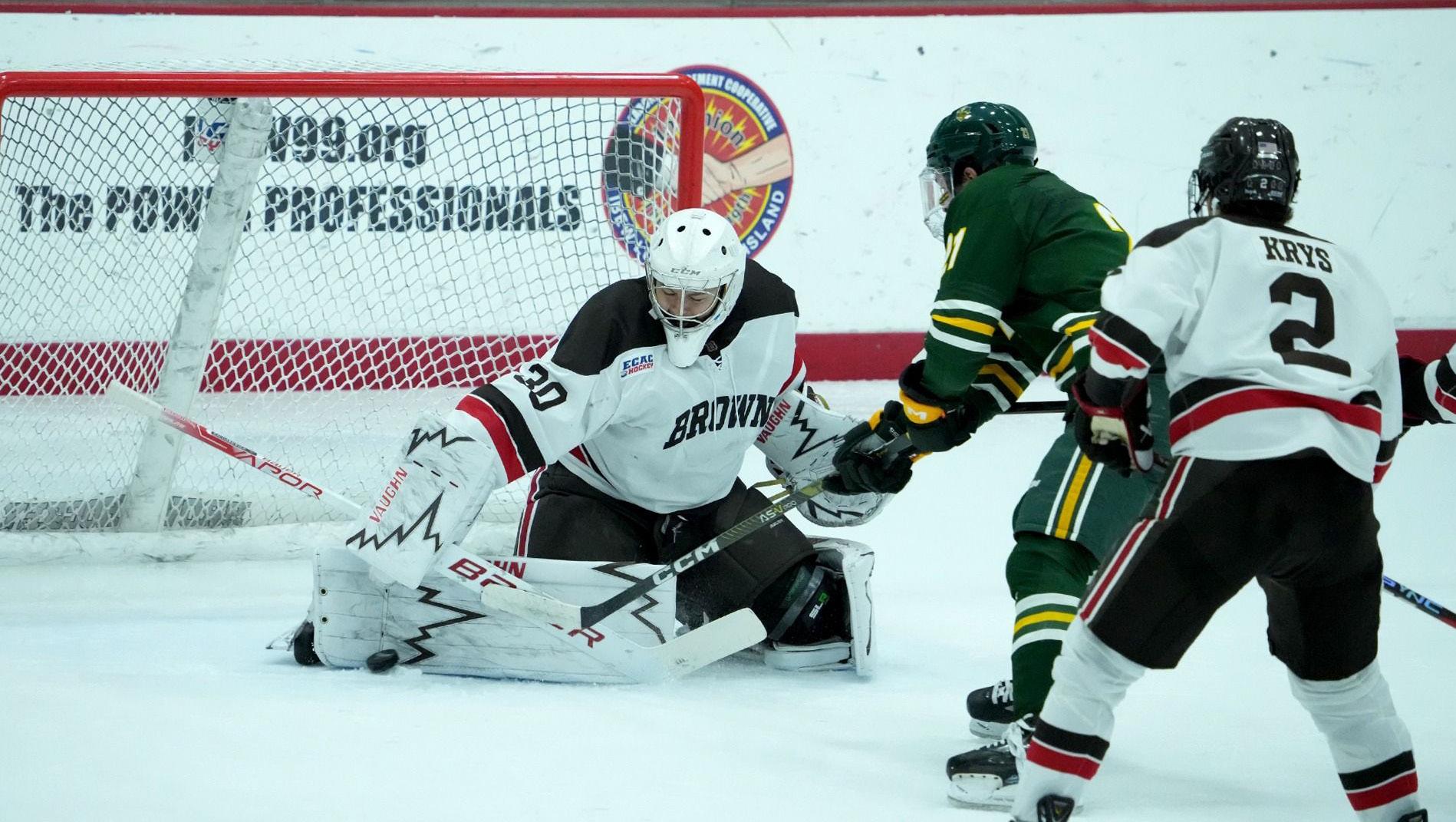
The game started with two early
Clarkson goals in the third and fifth minutes, giving them momentum and a commanding lead from the onset, similar to Friday’s game.
“At the start of the game, they kind of just outworked us just getting to the net,” said forward Jordan Tonelli ’24. “That’s how they got a couple of goals.”
The Bears showed signs of a strong offense late in the first period with a goal in the 16th minute by Gavin Puskar ’24, ending the period 2-1 for Clarkson.
The second period, similar to the game against the Saints, was mostly a defensive stand. Despite only being outshot by 8-7, the Bears conceded a goal that put them down 3-1 going into the third period.
In the third period, Clarkson extended their lead dramatically with a natural hat trick by player Alex Campbell, and despite a late goal by Puskar in a Brown power play, the Bears lost the game 6-2.
“We’re gonna get better overall. I think we (will) go back on Monday and think about this weekend. Obviously, that’s an embarrassing weekend for us,” said defenseman Luke Krys ’23. “We never want to lose two at home, but we’re gonna start over on Monday.”
The Bears will look to get back on track with Friday’s away game against Rensselaer Polytechnic Institute. The game will be available to stream on ESPN+.
UNIVERSITY NEWS
GLO, Nominations Committee presents at first GSC meeting of spring semester
BY KATIE JAIN SENIOR STAFF WRITER
The Graduate Student Council approved a new budget of $114,000 for the spring at its first meeting of the semester Wednesday. It also allocated $15,000 of its savings for food-insecure graduate students.GSC’s budget for the spring is over $30,000 more than last year’s $81,193, according to GSC Treasurer Sofia Verba GS. Every relevant category of the budget will have increased funding, aside from the standard $2,000 allocated for contingencies and savings.
Verba partially attributed the increased budget to a rise in the number of graduate students, who contribute to the budget through a semesterly student activities fee. A total of 2,920 graduate students were enrolled at the u niversity fall 2022, up from 2,689 student the previous fall, according to data from the Office of Institutional Research.
Budgeting for food insecurity
The council approved an allocation of $15,000 from its savings to target food insecurity. “We’re going to make sure everyone who needs food gets food,” said GSC President Joe Colleyshaw GS, adding that if food insecurity continues to be a major problem, “we can take it to the union as well.”
As of last spring, GSC’s food insecurity program, which serves about 120 graduate students per semester, is no longer paid for out of GSC’s budget, but instead through the council’s savings, according to Colleyshaw and Verba. This change came into play “when the graduate school, the President’s office and Provost’s office pulled all financial support for the food program,” Colleyshaw said.
u niversity Spokesperson Brian Clark said the initial food insecurity program was a pilot and that the u niversity has “shifted to a more sustained approach to supporting
food security for graduate students,” including increased stipends, partnerships with colleagues in Financial Aid and the Meal Gap program.
“As the Graduate School continues to focus on a multi-pronged, sustainable approach to food insecurity among graduate students,” the u niversity will continue to collaborate with GSC in supporting graduate students, Clark added.
“Food insecurity is actually starting to affect the master’s students a lot more than PhD students,” said Abdullah Rashid GS, chair of student life. “I’ve been collaborating with the School of Professional Studies to try and gauge the need for the food pantry and more food resources specifically for master’s students.”
Colleyshaw noted that graduate students in financial distress facing “a one-off, unexpected occurrence” can apply for help using the u niversity’s E-Gap Funds, which offer “an up to $500 loan that you pay back with no interest.” He added that students
can now apply for funds multiple times throughout their time at the u niversity.
Additional budget allocations $45,000 from GSC’s budget will go to social events, compared to last spring’s $33,000 allocation. Verba said that because the u niversity lifted its COVID-19 protocols, GSC can host more extensive community gatherings, including trivia nights, a spring formal and a field day for graduate students and their children.
The master’s advocacy committee funding doubled from $2,000 to $4,000 since last year to account for an increased number of master’s students, Verba added.
The professional development travel fund has almost doubled from $17,000 to $28,000 since last year. According to Verba, graduate students can now apply for up to $300 to cover travel to conferences.
Funding for the student life committee is also close to twice what
CALENDAR
it was last year, increasing from $6,000 to $11,000. Verba said that this money will primarily go towards creating a food pantry, maintaining and revamping the graduate student lounge and starting a program to assist graduate student parents.
Student resources, future projects
The meeting also featured an announcement from the Graduate Labor Organization, which invited graduate students to join its first general body meeting Feb. 7 and provided insight into the union’s contract renegotiation with the u niversity, which will occur later this month.
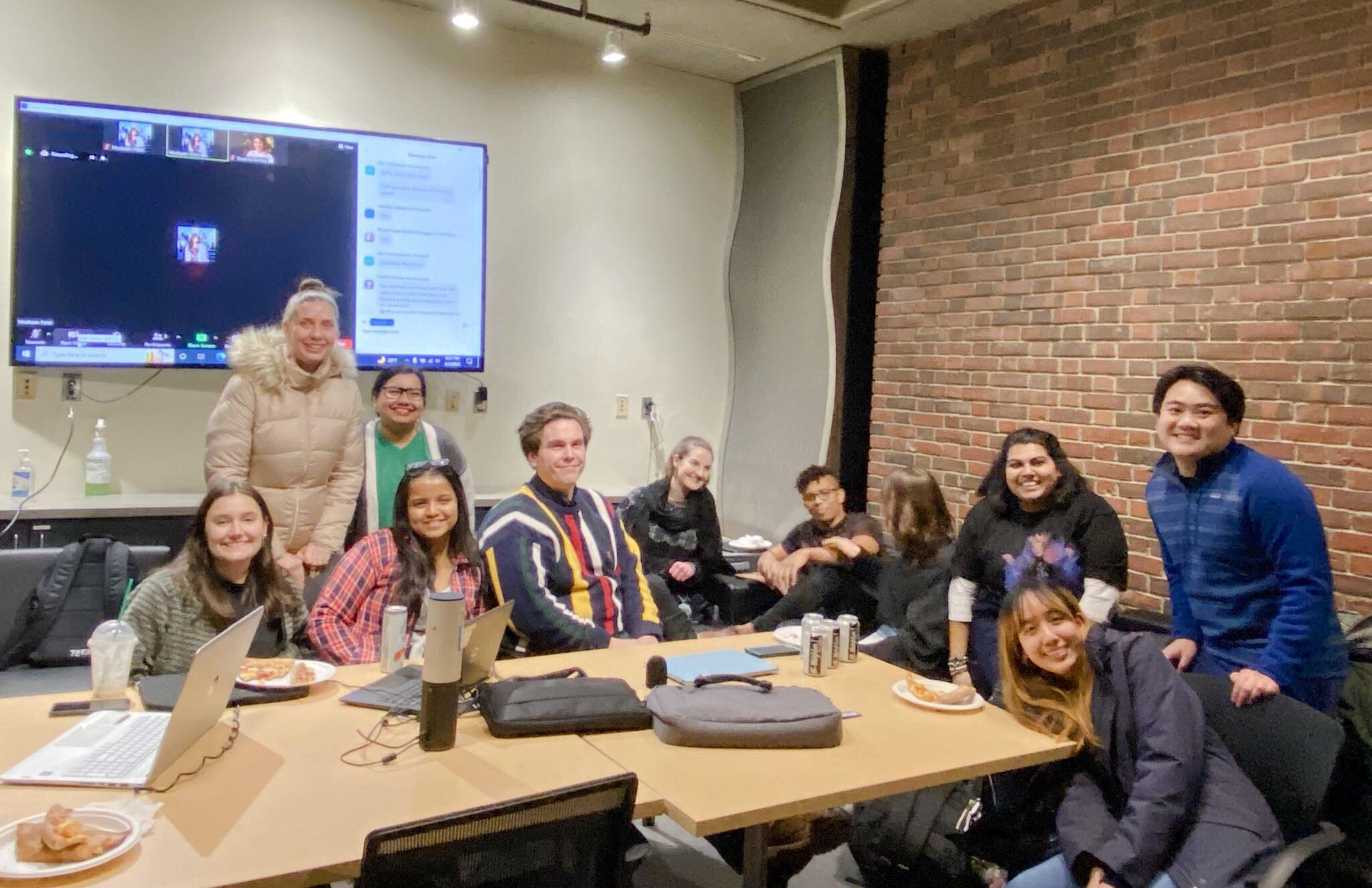
Assistant Directors of International Student Services Jennifer Dressen and Sonja Paulson attended the meeting to describe the resources offered by the Office of International Student and Scholar Services. This aid includes professional assistance navigating u .S. employment systems and accessing nonresident tax software, as well as immigration guid -
TODAY’S EVENTS
Neuroengineering Special Seminar: Christopher Lynn, Princeton
11:00
Barus
KATIE JAIN / HERALD
ance and processing.
GSC’s seven internal committees — Nominations, Finance, Social, Student Life, Master’s, International and Communications — also took the floor to present their plans for the semester and asked graduate students to sign up to volunteer on the committees.
The nominations committee will look for a new Dean of the Graduate School this semester, while the communications committee is working on providing hygiene products in restrooms and improving shuttle access.
GSC also discussed the potential for a new graduate student center. Colleyshaw said that the council is $5 million short of being able to build a designated graduate student building on campus but added that he would bring the subject up in the upcoming Brown Corporation meeting.
Pro-
121 South Main Street, Room 245 Queer Health All Student Mixer Series
U. community members discuss efficacy of RPP designation
BY BISHAKHA OLI STAFF WRITERLast spring, the College Curriculum Council approved a new curricular designation of “Race, Power and Privilege” for the 2022-23 academic year. Replacing the university’s “Diversity and Inclusion Action Plan Courses: Race, Gender and Inequality” designation, RPP is meant to highlight “the university’s commitment to the study of race, racial formations, inequality and social justice,” according to a March 2022 Today@Brown announcement.
This semester, there are over 100 courses offered under the RPP designation.
The Herald spoke to students and faculty members about the designation’s goals and impact in addressing racial injustice through course curricula.
From DIAP to RPP
The 2016 Task Force on Diversity in the Curriculum initially recommended an RPP designation with the intent of examining structural inequality and race “within a complex, pluralistic world” through curricular work, according to the Task Force’s 2016 report.
But after several committee members called for the university to “de-center race” in favor of a broader understanding of diversity, the CCC compromised and instated the DIAP designation over RPP.
The CCC’s 2020-21 Working Group on Diversity in the undergraduate Curriculum made the most recent switch from DIAP to RPP after “reflecting on the increasingly public, racist violence and other national events of recent years,” according to the university’s website.
“RPP is a more powerful version of DIAP,” said Riley Suh ’24, who served as a committee member in the 2020-21 Working Group. “RPP sounds almost radical and DIAP was originally adopted because it’s more broad.”
“There is power in not needing to soften the reality of what we are focusing on and what needs to be acknowledged,” Suh added.
Michael Kennedy, professor of sociology and international and public affairs, said that DIAP — which focuses on
a wide range of inequalities — distracts from a focused conversation posed by RPP about why inequalities exist and to what extent they are the result of white supremacy.
“I find it useful to think about the landscape of injustice with peaks and valleys and not with a plain of variation,” Kennedy added. The shift from DIAP to RPP is “making those mountains and valleys a little bit more distinct.”
RPP in the classroom
One of the objectives of the RPP course designation, as outlined on the university website, is for students to apply the “knowledge of critical theories of race, colonialism and power” to their areas of academic interest.
“Within my concentration … we look at narratives, at how a story was written,” said Aboud Ashhab ’25, a history concentrator. “We like to say that history is written by victors, but even the way that history is taught has to do with conquerors … and inherently with colonialism and racism.”
Reflecting on his experience this past semester with an RPP-designated course, MES 1222: “Modern Palestinian History,” Ashhab said that the course’s critical analyses of concepts such as nation-states and orientalism ensured that it remained true to its RPP mandate.
Madeline Day ’25, a public health
concentrator, said she believes the RPP designation is relevant to her studies because a “major focus within public health is how to achieve health equity” across social strata including race and class.
Day took an RPP-designated course entitled PHP 1680I: “Pathology to Power: Disability, Health and Community” in fall 2022. In the course, “our professor highlighted the fact that there (is) a diverse set of lived experiences” among people with disabilities, Day said.
Suh, who is also a public health concentrator, emphasized the importance of RPP-related subjects regardless of a student’s academic interest.
“There is (not) a single position or job in this world … that would not be benefited by learning about how we exist in the world,” Suh said. “That’s ultimately what these classes are: ‘How do I exist in the world? What does the world look like to other people? And how do we improve upon it for everybody?’”
Effectiveness in the open curriculum
Day said that she always takes note of a course’s RPP designation when registering for classes, particularly when deciding between two courses that cover similar subject matter.
“If I ask the average person in my hallway if they know that RPP is a designation that classes have, I don’t think
that they would notice because it is in the fine print” on Courses at Brown, Suh said.
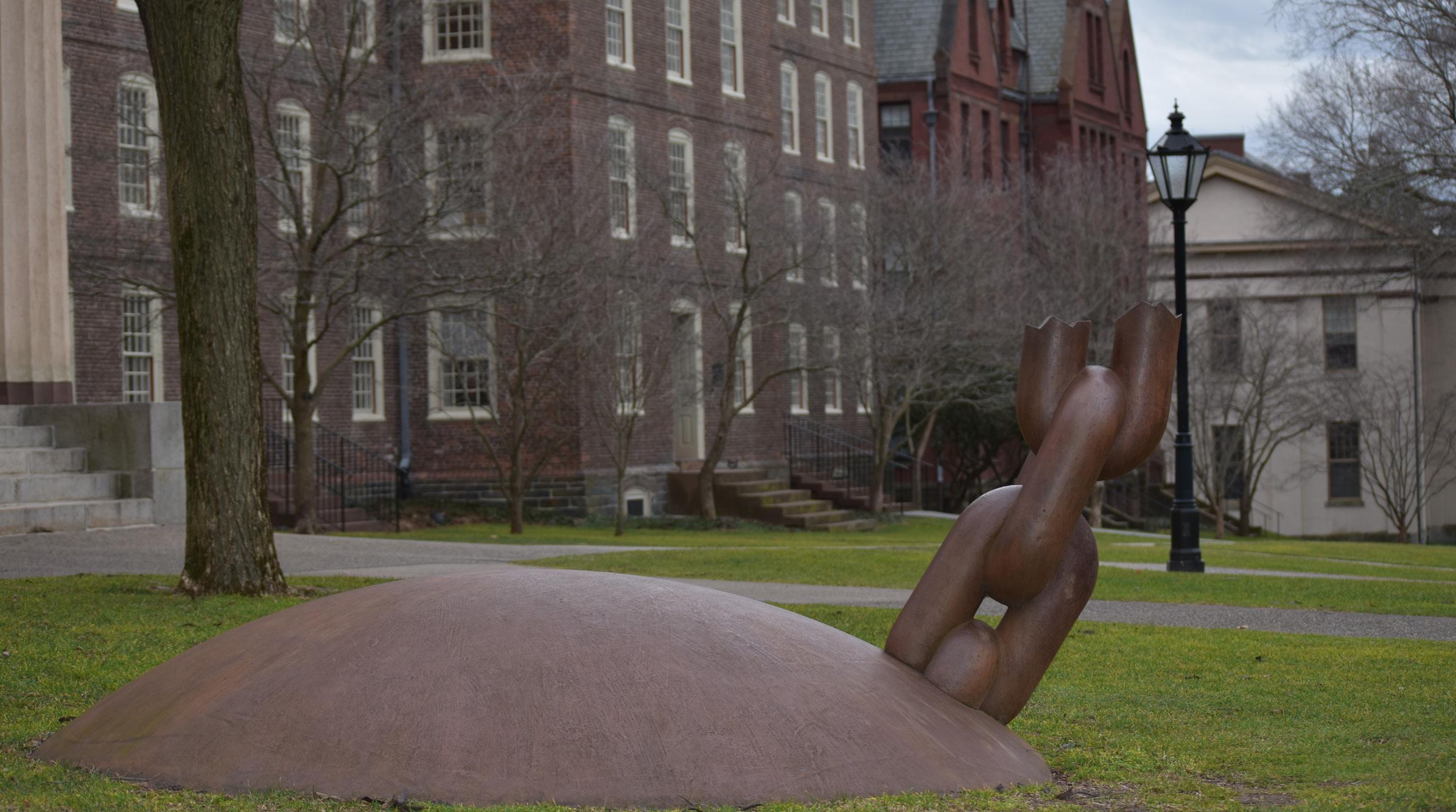
According to Suh, members of the 2020-21 Working Group informally discussed making the RPP course designation a requirement, but decided against it partly due to the nature of the university’s open curriculum.
She noted that while RPP is not a formal requirement, the 2020-21 Working Group has taken steps to make these courses more accessible and visible, including increasing the number of introductory and lower-level courses with RPP designations and investing “in support for first-year seminars.”
Kennedy, who is teaching a spring 2023 RPP-designated course entitled SOC 1490: “Power, Knowledge and Justice in Global Social Change,” said that making RPP courses a requirement can compromise the goal of the designation.
“Do we need to educate to empower? Do we need to educate to enlighten? Or do we need to educate in order to fulfill some requirement?” he said. “The latter is a recipe for boredom and meaninglessness.”
Looking forward
Jadyn Ligoo ’25, an international and public affairs concentrator, said she is unsure whether the RPP designation is a successful tool “for the university to show its commitment to
supporting scholarship that is critically evaluating how inequalities manifest in our society.”
In lieu of course designations, Ligoo said she “would rather see more funding allocated to supporting scholarships and specific initiatives such as the Africa Initiative.” The Africa Initiative promotes research and teaching in collaboration with African academic partners, according to the initiative’s website.
Kennedy added that student movements can be more effective sources of change on campus than curricular designations. The campus advocacy group Decolonization at Brown “changed the way I teach,” he said.
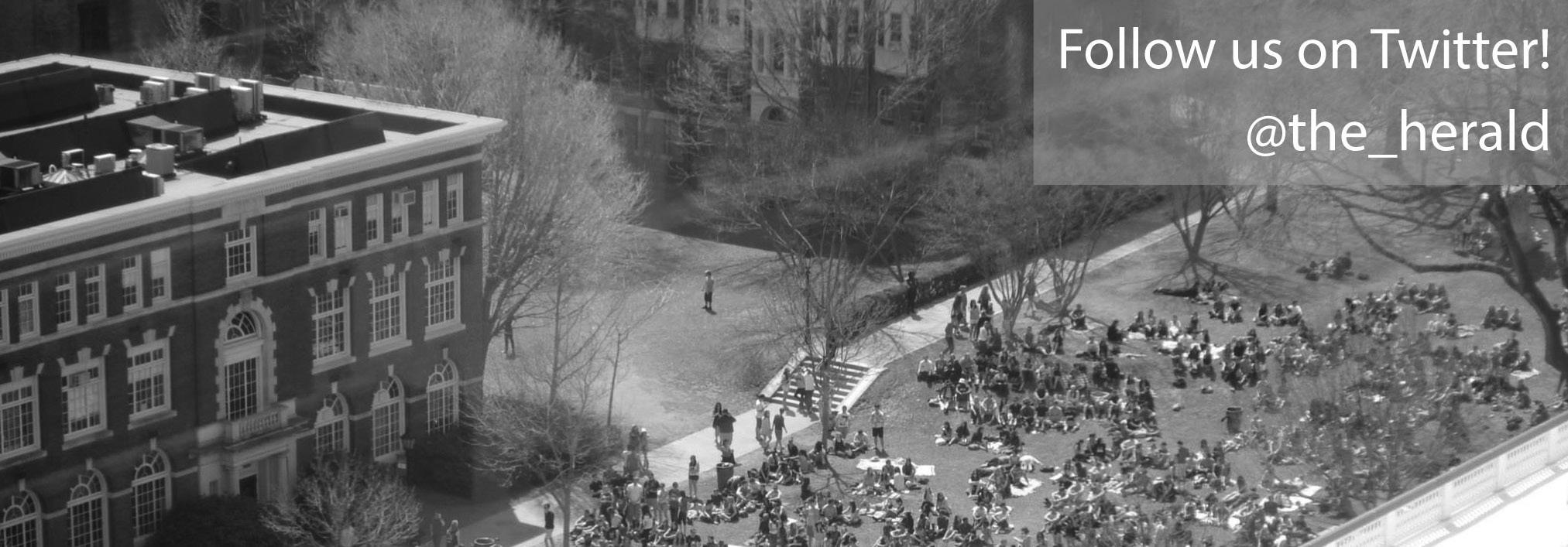
Regarding the future of the RPP designation, Deputy Dean for Curriculum and Co-Curriculum Sydney Skybetter wrote in an email to The Herald that the College will measure the effectiveness of curricular initiatives like RPP over many semesters.
“Over time, we will deeply consider how the curricular resignation has fared and share those findings in the years to come,” he wrote.
Reflecting on the future of RPP, Kennedy said that, while the designation is encouraging, it is “hardly a resolution” to racial injustice.
“The resolution does not come with labels,” Kennedy said. “The resolution comes through meaningful engagements that open up conversation.”
Students, faculty praise specificity of RPP over DIAP, note shortcomingsDANA RICHIE / HERALD The switch from DIAP to RPP was initiated due to the University’s reflection on increasing incidences of “public, racist violence” nationwide, according to the University’s website. The University offered over 100 courses under the RPP designation for the spring 2023 semester.
U. revises Brown Semester Internship Program following fall pilot
Program to become semester-based, offered in spring with expanded locations in Dublin, LA
BY JENNIFER SHIM SENIOR STAFF WRITER
The Brown Semester Internship Program — originally called the BE^3 Brown program — completed its pilot run last semester. The program, which was announced by the university last spring, enables Brown students to spend a semester away from Providence through a six-month immersive research or entrepreneurship experience, The Herald previously reported.
This fall, the pilot program offered six students the opportunity to pursue internship experiences — four in Berlin and two through the “Campaigns and Social Change” opportunity, wrote Assistant Director of Experiential Programs Learning Kelly Watts and Senior Associate Dean of the College for Co-Curricular and Experiential Learning Betsy Shimberg in an email to The Herald. Watts and Shimberg also shared changes that will be implemented for the program in future semesters.
In addition to its new name, the Brown Semester Internship Program will operate as a semester-long opportunity rather than beginning in the summer, Watts and Shimberg wrote. The program will expand to Los Angeles and Dublin — in addition to existing opportunities in Boston and Berlin — and will be offered in both the fall and spring semesters. Students will also have the opportunity to “source their own internship opportunity in any location beyond these four sites” through the Open Campus option, they added.
According to Watts and Shimberg, the Brown Semester Internship Program “provides an opportunity to actively engage with a local community through internships while staying en-
rolled and making progress towards degree completion.” In addition to taking courses at the university during the program, students engage in a parttime internship.
“Students are building relationships with co-workers, as well as developing and strengthening professional skills in a location outside of Providence,” they wrote.
“Students have shared gratitude for the opportunity to experience an internship while enrolled at Brown as part of a cohort that is supported by Brown faculty and staff,” Watts and Shimberg wrote. The students appreciated “gaining hands-on experience and confirming their desire to continue to pursue a professional field or learning that they want to pivot directions,” they added.
Two students spoke with The Herald about their experiences participating in
the program last semester.
Dylan Abel ’24 worked with an ethnomusicologist researcher at the Humboldt university of Berlin to sort through radio tapes that had been found in the city’s former ethnological museum.
“I had a wonderful experience,” he said. “It was a great team of people, (I) got to meet some amazing ethnomusicologists and it was a very positive experience overall.”
Abel also appreciated the opportunity to take classes in Berlin while participating in the program and took a course that studied monuments in the city. “A lot of my learning in that course was not in the classroom, but it was in the city itself,” he said.
Jazz Carlson ’25 spent the semester working for Organize New Hampshire, a Democratic voting organization. “I was a campus organizer, which meant I
was working specifically at Dartmouth,” Carlson said. “My job was to make sure that students (on campus) had a plan to vote.”
Carlson explained that the university was not able to directly provide support in finding a partisan internship opportunity. “Because (I) was working in the realm of politics, and particularly partisan politics, they weren’t able to help me find a job,” he said. “They could give me advice … to build those connections, but they couldn’t explicitly be partisan.”
But Carlson said the courses he took during the program helped him reflect on the specific skills he was developing through the internship. He was able to reflect on and strengthen “relevant skills … like conflict resolution and how to communicate in a group.”
Shimberg and Watts also shared with The Herald some of the challenges
of attracting students to the program.
“Some students, while interested in the program, ended up not participating because they did not want to be away from campus after the isolation from the pandemic,” they wrote. Other students were deterred by the length of the program, which stretched from the summer through the fall semester, they added.
Despite being far from College Hill, Abel and Carlson said that they did not feel too isolated from Brown during the experience.
“I always felt supported and seen. I thought that it was managed very well,” Abel said. “I thought there was a great group in Berlin handling our needs.”
“I really loved the program,” Carlson said. “I actually felt like they helped me stay connected to Brown … it felt nice to know that I could maintain my connections.”
Submissions: The Brown Daily Herald publishes submissions in the form of op-eds and letters to the Op-eds are typically between 600 and 900 words and advance a clear argument related to a topic of campus discourse. You can submit op-eds to opinions@browndailyherald.com.
THE BROWN DAILY HERALD
133rd Editorial Board
Editor-in-Chief Will Kubzansky
Managing Editors
Katy Pickens
Alex Nadirashvili
Senior Editors
Augustus Bayard
Caleb Lazar
Peter Swope
Kaitlyn Torres
Post- Magazine
Editor-in-Chief Kimberly Liu
News
Metro Editors
Emma Gardner
Rhea Rasquinha
Jacob Smollen
Julia Vaz
Science & Research Editor

Haley Sandlow
Senior Science & Research Editor
Gabriella Vulakh
Arts & Culture Editors
Aalia Jagwani
Finn Kirkpatrick
Rya Vallabhaneni
Sports Editor Linus Lawrence
University News Editors Sofia Barnett
Charlie Clynes
Emily Faulhaber
Grace Holleb
Sam Levine
Neil Mehta
Haley Sandlow
Kathy Wang
Digital News Director of Technology
Swetabh Changkakoti
Opinions
Editorial Page Editor
Kate Waisel
Head Opinions Editor
Alissa Simon
Opinions Editors

Anika Bahl
Bliss Han
Melissa Liu
Jackson McGough
Multimedia
Illustration Chief
Ashley Choi
Photo Chiefs
Elsa Choi-Hausman
Dana Richie
Photo Editors Mathieu Greco
Claire Diepenbrock
Rocky Mattos-Canedo
Lilly Nguyen
Kaiolena Tacazon
Social Media Chief
Sahil Balani
Social Media Editors
Julian Beaudry
Emily Faulhaber
SINCE 1891 @the_herald facebook.com/browndailyherald @browndailyherald @browndailyherald
Kaiolena Tacazon
Production Copy Desk Chief Brendan McMahon
Design Chief Neil Mehta
Design Editors
Sirine Benali
Maddy Cherr
Ashley Guo
Gray Martens
Business General Managers
Joe Belfield
Andrew Willwerth
Sales Director
Alexander Zhou
Finance Director Eli Pullaro
Letters to the editor should be around 250 words and respond to an article or column that has appeared in The Herald, or critique or commend The Herald’s editorial decisions. You can submit letters to the editor to letters@browndailyherald.com.
Submissions undergo multiple rounds of editing. These rounds of editing generally take place over the course of one evening, and you may have to respond to edits late in the evening. If you know you will be unable to do so, please mention that in your email, and we will do our best to work with you.
Submissions can build on reporting from The Herald, reporting elsewhere, official statements from the University or other groups and other reputable sources, but they cannot break news or contain information that The Herald cannot verify. Because we cannot publish unsubstantiated information, failure to provide appropriate sources may mean we have to modify or remove unverified claims. The Herald will not publish anonymous submissions or submissions authored by organizations. Leaders of student organizations can be identified as such but cannot write under the byline of their organization. The Herald cannot publish all submissions it receives and reserves the right to edit all submissions. All submissions to The Herald cannot have been previously published elsewhere (in print or online — including personal blogs and social media) and must be exclusive to The Herald. Once your submission is published in The Herald, The Brown Daily Herald, Inc. owns the copyright to the materials.
Commentary: The editorial is the majority opinion of the editorial page board of The Brown Daily Herald. The editorial viewpoint does not necessarily reflect the views of The Brown Daily Herald, Inc. Columns, letters and comics reflect the opinions of their authors only.
Corrections: The Brown Daily Herald is committed to providing the Brown University community with the most accurate information possible. Corrections may be submitted up to seven calendar days after publication. Periodicals postage paid at Providence, R.I. Postmaster: Please send corrections to P.O. Box 2538, Providence, RI 02906.
Advertising: The Brown Daily Herald, Inc. reserves the right to accept or decline any advertisement at its discretion.
Copyright 2023 by The Brown Daily Herald, Inc. All rights reserved.
Vanderpool ’24: Reclaiming student democracy means voting ‘yes’ on recall
An election to recall undergraduate Council of Students President Ricky Zhong ’23, finally, is imminent. As this election begins, there are two topics I’d like to address: why I helped organize this recall, and what it can accomplish.
I’ve seen significant discourse and speculation about why I worked to organize a recall. Explanations I’ve heard include that I’m a disgruntled election loser and that I’m seeking retribution.
Both accusations are patently false. My motivations for this are a matter of principle: a government cannot operate without accountability, and uCS has refused to be held accountable by internal checks and balances. This has been demonstrated by its failure to seat the Student Government Ethics and Accountability Board and dissolution of the general body. Therefore, it’s our responsibility as voters to exercise our only external check: participation in a recall election. It is imperative that we exercise our right to vote and hold uCS accountable.
Students deserve the right to express what student government means to them and how it should manifest. While I’m focused on uCS and the present recall, this movement to reform our
student government is not an effort to abolish any specific branch of student government or smear any individual. Rather, it is an opportunity for students to decide how student government should serve them.
Should Zhong be successfully recalled, stu-
dents will have issued a powerful and unprecedented message to future student governments at Brown university. A message that no individuals or groups can escape the rule of law nor the strong grip of an active, democratic system. We can demand change, making clear to uCS that they must reform their processes or forever
be seen as an undemocratic club masquerading as a government.
When this recall vote is successful, the president will be stripped of his position and a special election will be held to replace him. Currently, uCS plans to hold this special election
open meetings, return to the use of Robert’s Rules of Order — which lays out the standard rules of parliamentary procedure — and restore language in the Code of Operations that provides for a general body. There are plenty of other priorities that we can undertake once the current leader is out and a new president is elected, such as rewriting the uCS Constitution, further uplifting student activism and voices, holding the administration accountable to student opinion and identifying new approaches to Spring Weekend — the planning for which students outside of the Brown Concert Agency have been left out of.
internally, meaning only members of uCS will be able to vote in it. I firmly believe that this election should be open to the student body. It would be abhorrent and anti-democratic for the organization to do otherwise.
After the selection of a new president, the Council’s immediate priority should be to re-
LIFEGUARD ON DUTY
Whether or not you’ve personally engaged with uCS, this president’s actions represent a far-reaching subversion of your democracy and an active effort to avoid electoral accountability. It’s time that students issued a mandate for change. Vote “yes.”
Christopher Vanderpool ’24 can be reached at christopher_vanderpool@brown.edu. Please send responses to this opinion to letters@browndailyherald.com and other opeds to opinions@browndailyherald.com.
 JACK WALKER / HERALD
JACK WALKER / HERALD
After spending 48 hours hibernating in my room during the polar vortex, I came to the resolution that I should exercise more. My sport of choice: swimming, but only when there’s a lifeguard on duty. Because, at the end of the day, it is that deep.
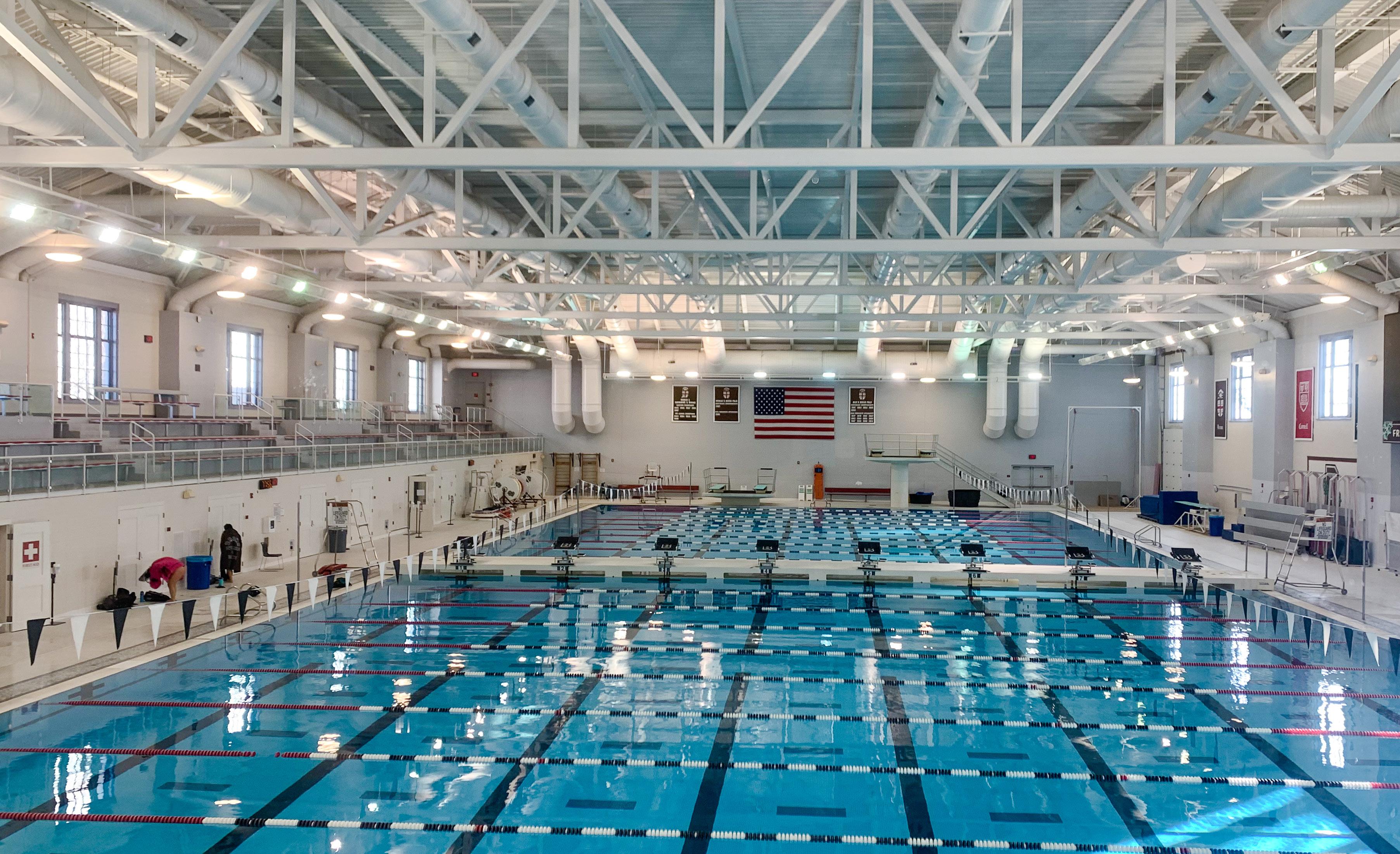
“My motivations for this are a matter of principle: a government cannot operate without accountability.”
Men’s basketball sweeps Harvard, Dartmouth in pivotal matches
Bruno jumps to fourth in Ivy League, Mike Martin ’04 has 133 wins as head coach
BY ABE WYETT STAFF WRITER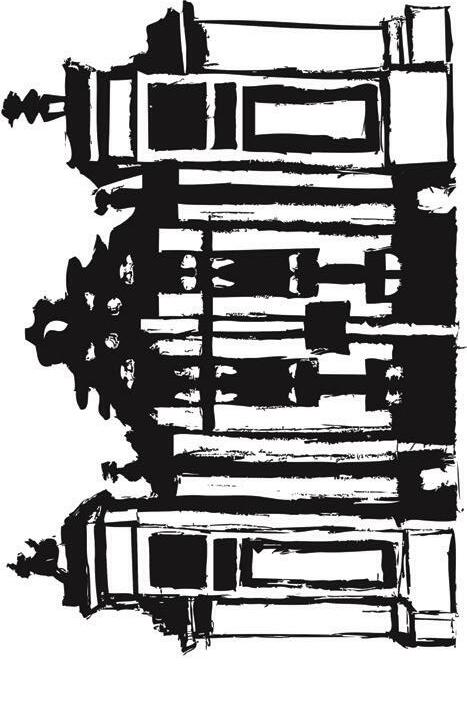
With their season on the line, Brown stepped up to the task, defeating both Dartmouth (8-15, 4-5 Ivy) on Friday and Harvard (12-11, 3-6 Ivy) on Saturday to jump to fourth in the Ivy League standings.
“We knew that these games were a ‘moment of truth,’” Aaron Cooley ’25 wrote in an email to The Herald.
“This weekend creaked the door of that potential for us… now it’s time to kick the door down and let the Ivy League know we’re here,” Cooley added.
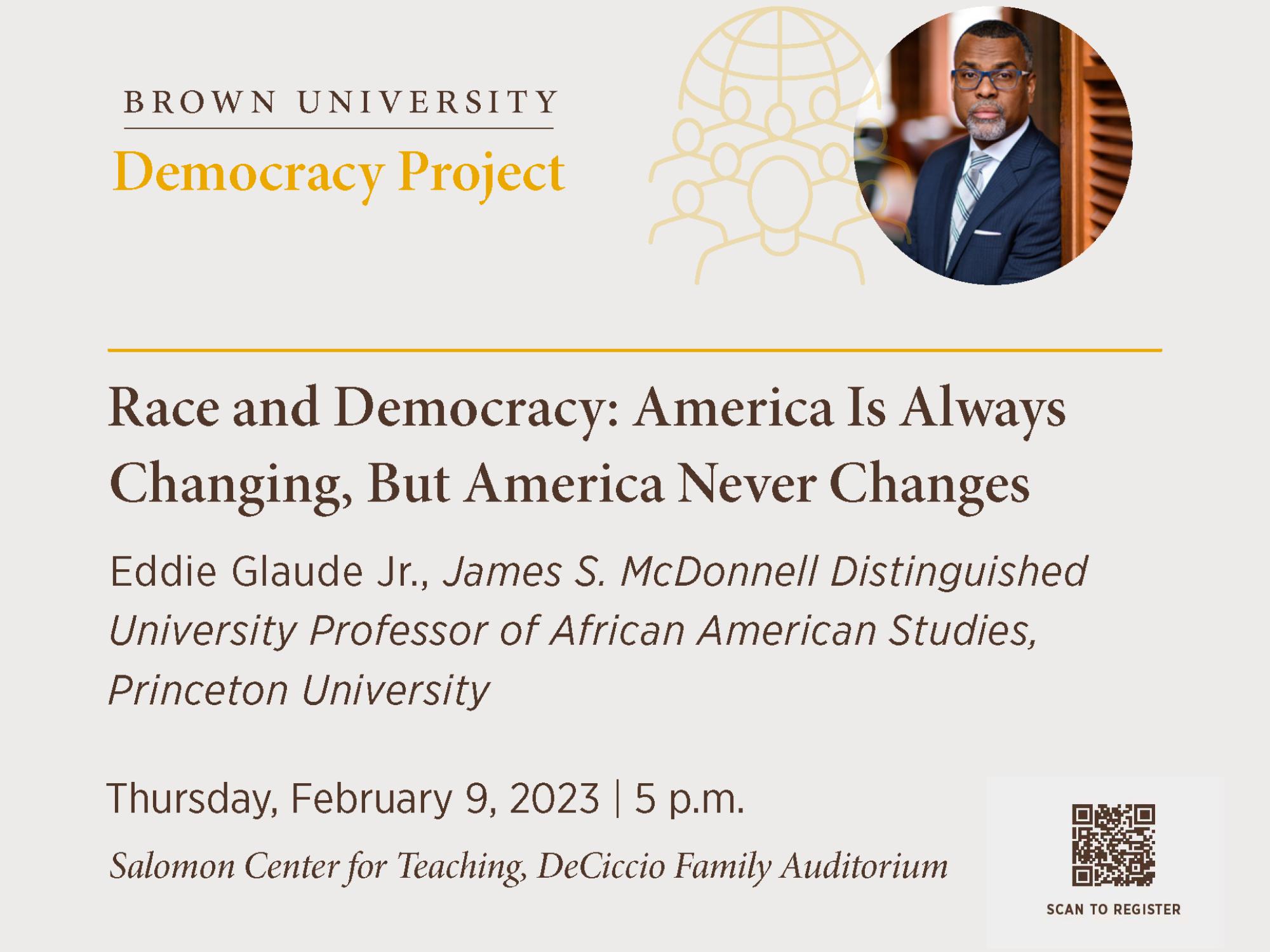
On Friday afternoon, Bruno took care of business, handing Dartmouth a 73-61 loss. Cooley, Nana Owusu-Anane ’25, Kino Lilly Jr. ’25, Dan Friday ’24 and Paxson Wojcik ’23 lined the circle for tip off. Wojcik sparked Bruno’s offense with a three-pointer assisted by Lilly Jr. in the first 17 seconds of play.
Although Dartmouth led 7-5 in the fourth minute of the game, Brown took control, holding the lead for the rest of the half — and the game.
Holding a nine-point advantage of 25-16 with 2:48 left in the half, smooth ball movement led to a Cooley corner three. Wojcik then stole a pass, leading to a stepback three for Lilly Jr. on the other end. Lilly Jr. and Wojcik both excelled offensively, scoring 23 and 15 points respectively on efficient shooting from behind the arc.
Wojcik said his strong performance — five points, nine rebounds, and six assists — “starts with my teammates and coaching staff instilling confidence in me. They all believe in me and it helps me believe in myself.”
Brown entered halftime leading Dartmouth 34-21 and extended their
lead to 17, the biggest differential of the game, with 14:21 left in the second half.
Bruno shot an impressive 13-27 (48.1%) from behind the arc and 2351 (45.1%) from the field. Cooley controlled the floor defensively, tallying three steals and three blocks, while also tying his season high of 14 points. Owusu-Anane scored seven points, along with nine rebounds, four assists, five blocks and two steals.
“After a tough performance defensively against Cornell I knew I had to bounce back and be more locked in for myself and for my teammates,” Cooley wrote. “Sometimes that means doing the nitty-gritty things that may not show up upon the stat sheet.”
The following day, Bruno defeated the Harvard Crimson 68-65 in a close contest. Rolling with the same starting squad, the Bears jumped out to a quick 10-2 lead. Wojcik scored the first seven points for the Bears, and Lilly Jr. drained
a three-pointer to cap the 10-0 run.
In a tight first-half, Brown and Harvard were tied with five seconds remaining. Lilly Jr., catching an inbound from Owusu-Anane, made it down the court in five seconds for a buzzer-beating layup, elevating Bruno above the Crimson 28-26 entering halftime.
With 17:24 remaining in the game, Harvard led Brown 34-33, but a 16-0 run lifted Bruno above the Crimson 49-34, sparked by a Lilly Jr. layup and capped off by a Wojcik three-pointer.
Although Harvard later came within two points with six seconds left on the game clock, Bruno held the lead for the remainder of the contest, avenging their home loss against Harvard from earlier this season.
The Bears shot 6-17 (35.3%) from three and 22-49 (44.9%) from the field. Wojcik and Lilly Jr. capped off their high-scoring weekends with 23 and 21 points, the former a career-high for
Wojcik.
“Paxson and Lilly Jr., man, are you not entertained? Every night they bring it, and it’s just been an honor and privilege to share the court with their styles of play,” Cooley said.
“We definitely looked for them to operate our offense and be that 1-2 punch in the backcourt,” he added.
Entering this weekend, Bruno’s 59.6% free-throw percentage ranked at the bottom of the Ivy League and second worst among all D-1 programs. Against Dartmouth and Harvard, the Bears shot a much improved 78% from the line on 32-41 shooting.
“We’ve been practicing our free throws consistently so I think that’s given us some confidence,” Wojcik said on Brown’s improved performance from the charity stripe.
“We’ve struggled all year shooting free throws. It’s no secret. We just continue to work on it. We continue
to practice pressure free throws as much as we can. … It really helped that Paxson and Kino got to the line a lot tonight,” Head Coach Mike Martin ’04 added.
While Martin acknowledged that their performance from the line is a “good step in the right direction,” he emphasized that Bruno still has work to do.
These victories against Dartmouth and Harvard moved Brown to fourth in the Ivy League standings as they continue their pursuit of winning the Ivy League tournament. After securing the win against Harvard, Martin tied former university Basketball Coach Stanley Ward at 133 wins as a head coach for Brown.
Martin will look to become Bruno’s winningest men’s basketball coach against Cornell next weekend at 2 p.m. on Feb. 11. The game will be streamed on ESPN+.
